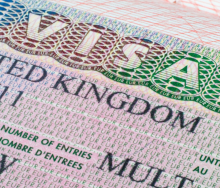T
RAVEL agents are exposing
themselves and their agencies to
large-scale financial risk and its
consequences (disputed transactions
and ADMs) by the continuing practice
of processing ‘card-not-present’ credit
card transactions without gaining
bank authorisation.
Linda Dempster, financial consultant
to the travel industry at BSP and
Financial Consulting, says that with
South Africa having the highest rate
of credit card fraud in the world, local
legislation for credit card payments is
designed to offer banks protection.
She warns that any time agents
accept credit card payment, they
should be swiping their clients’
cards, otherwise the client is able to
dispute that transaction and win. An
unscrupulous client can get an agent
to book a trip for them using their
credit card details, complete the trip
and then dispute payment.
While technically agents could take
these clients to court, questioning
why they used the air ticket if it was
never their intention to purchase it,
the agent would then have to incur
the cost of going to court. What’s
more, says Linda, airlines generally
refuse to go to court, saying they are
too busy for this. Agents would have
to subpoena them.
Agents should not accept clients’
credit card details over the phone or
e-mail, “unless they are very sure of
who their customer base is,” says
Walter Volker, ceo of the Payments
Association South Africa (PASA).
Walter says if merchants don’t have
proof that the cardholder authorised
the transaction, then it could be
viewed as a stolen card scenario.
He says although travel agents
are able to conduct card-not-present
transactions, this pertains primarily to
the eCommerce environment where
transactions must be submitted
for 3D-Secure verification by the
cardholder. “3D-Secure authentication
is done by the cardholder on their
mobile device and offers merchants
(in this case travel agents) similar
protection to that of a signature or
PIN in the card-present environment.”
Walter says if a transaction was
authenticated via 3D-Secure, the
merchant is protected against the
chargeback where a customer claims
they did not perform the transaction.
“In that case, the issuer who
authorised the transaction will take
the liability for the transaction.”
Resolution 890 in the Iata Travel
Agent’s Handbook stipulates that,
while agents may process card-notpresent
transactions, this is done
under the sole responsibility and
liability of the agent. It says in the
case of a disputed transaction, and
its subsequent rejection by the card
company, the relevant airline will
charge back the loss to the agent by
means of agent debit memo.
With this in mind, Linda emphasises
the importance of agents phoning the
bank for an authorisation code. She
says some agents might simply enter
six zeros into the system instead
and, although certain transactions
may go through, this is extremely
dangerous. However, the Resolution
maintains that any authorisation does
not guarantee the charge will
go undisputed, and in such cases,
a chargeback will still be made by
the airline.
Beware-card-not present payments place you at risk
12 Oct 2016 - by Debbie Badham
Comments | 0













